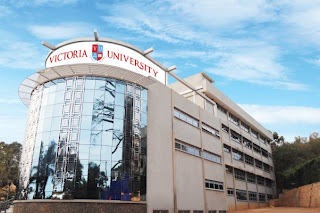 |
Kampalans lining up to buy GOTV decoders. What most don't know is that
digital migration is not the same as subscribing to a digital PayTV provide
r (photo courtesy of Daily Monitor) |
The confusion surrounding the recent switch-off of some TV stations in and around Kampala, as equipment to enable migration to digital television was being installed on the Kololo TV mast, exposed just how little sensitization has been done to prepare the public for digital migration.
The Uganda Communications Commission (UCC) has done a poor job sensitizing Ugandans on the digital migration to the extent that even the few who have an idea of what digital migration is about associate the move to digital with subscription services like StarTimes and GoTV.
UCC has not done enough to sensitize the public on the purchase of free-to-air decoders (for which no subscription is required) and how these will work. It has instead kept quiet while the PayTV stations are raking in millions from people who are under the impression that without a subscription from a pay TV provider like GOTV they will not be able to watch any TV when the switch to full digital is complete.
The UCC should be clearly telling people that they are now only testing the digital signal and hence people will still be able to watch their analogue channels for a while until the full switchover is done. They should then further explain how the migration will work and how the people will be able to get their favourite channels for free as they have been doing before migration.
The UCC should also take steps to either import subsidized free-to-air set-top boxes or at least prepare, and publicize widely, a list of trusted distributors from where people can go to buy set-top boxes that fit their price range. A clear distinction should also be made between free-to-air set-top boxes and those for which a regular subscription will be required.
As of now the UCC is silent on all these issues, which fuels suspicion that they might be in cahoots with the Pay TV companies, helping them reap big profits while the population is still ignorant.
All this comes on the heels of confusion over which standard for terrestrial digital television Uganda would adopt. First UCC said it would be DVB-T (Digital Video Broadcasting — Terrestrial) then it later changed its mind and decided on the more advanced DVB-T2 yet many consumers had already purchased DVB-T decoders mostly from StarTimes, which, on top of not offering them free-to-air channels, will soon be rendered obsolete. This was on top of UCC misleading people in the early days that those with digital satellite receivers/decoders from companies like DSTV would not have anything to worry about from the switch from analogue to digital because these decoders were already digital. What they failed to mention was that DSTV decoders (and those of other satellite TV services like ZUKU) decode DVB-S/DVB-S2 (Digital Video Broadcasting — Satellite), which though related in some ways is not the same as DVB-T/DVB-T2
The UCC website is also woefully lacking in any useful information on digital migration. The site only has a press release on the just concluded switch-off of TV channels on the UBC mast and a page on “Minimum specifications for DVB-T2 digital set-top boxes for the Ugandan market”, which even for somebody like me with some knowledge on digital television is too technical.
UCC should at the very least have a FAQ page that answers most of the questions consumers are likely to have and also allay some fears based on conflicting information. There should be a simplified explanation of the set-top box specifications that does not only make sense to a technical person. There should be a well laid out time-frame over which the migration is going to take place in different parts of Uganda.
The website is just one channel through which information can be relayed but unfortunately it can only be accessed by only few people. Therefore a lot more sensitization has to be done especially on the local radio and TV stations over coming months so that by the time the global switch to digital is complete a lot more people are aware of what is going on.
A billboard here and there in combination with the odd press conference and accompanying press release in the national English language papers will not do.




